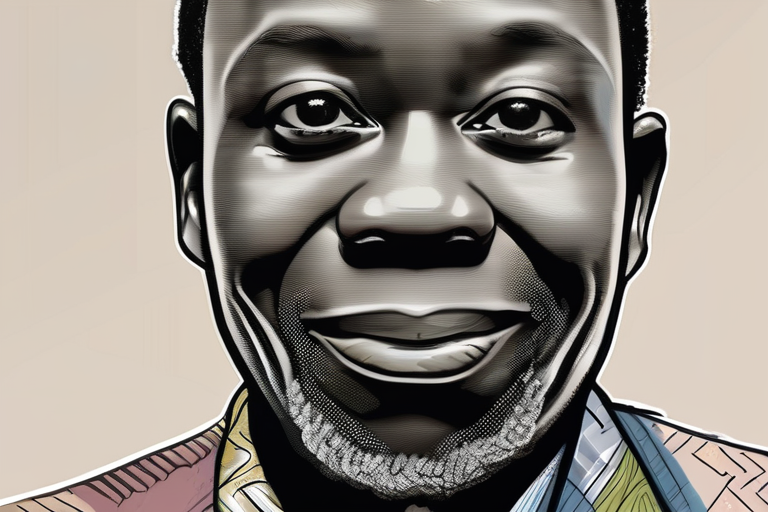Disabled Nigerian Man Living in UK for 38 Years Wins Appeal Against Deportation
In a landmark decision, the UK's Upper Tribunal has granted Anthony Olubunmi George, a disabled Nigerian man who has lived in the country for nearly four decades, the right to remain despite the Home Office's efforts to deport him.
George, 63, arrived in the UK at the age of 24 in 1986 and has since made various applications for leave to remain, which were repeatedly rejected by the Home Office. However, on February 22, 2023, the Upper Tribunal overturned the Home Office's decision, ruling that George's human rights would be breached if he were deported.
"I'm overjoyed," George said in a statement. "I've been through so much, and it's a huge relief to finally have some stability in my life."
George's case highlights the complexities of immigration law and the challenges faced by individuals who have built their lives in a foreign country. He has no criminal convictions and has contributed to British society through his work as a community volunteer.
However, George's health has deteriorated significantly since 2019, when he suffered two strokes that left him with speech and mobility issues. Despite these challenges, he continues to live independently and relies on the support of friends and family to manage his daily needs.
"I've lost count of how many different sofas I've slept on," George said wryly. "But I'm just grateful to have a roof over my head."
The Home Office's decision to pursue deportation was based on its policy of removing individuals who do not meet the requirements for settled status under the EU Settlement Scheme. However, human rights organizations and advocacy groups have criticized the policy, arguing that it disproportionately affects vulnerable individuals such as George.
"This is a victory for Anthony Olubunmi George, but also for all those who are fighting against the Home Office's draconian immigration policies," said Dr. Sarah Spencer, a leading expert on immigration law. "It highlights the need for a more compassionate and nuanced approach to immigration policy."
The Upper Tribunal's decision has significant implications for the UK's immigration system, which is currently under review by the government. The ruling also raises questions about the treatment of vulnerable individuals who have built their lives in the country.
As George looks forward to rebuilding his life, he remains cautious about the future. "I'm just taking it one day at a time," he said. "But I'm grateful for this second chance."
Background and Context
Anthony Olubunmi George arrived in the UK in 1986 as a young man with dreams of building a new life. He worked hard to establish himself, eventually becoming a community volunteer and contributing to British society through his work.
However, despite his efforts, George's immigration status has been a source of uncertainty for decades. He has made various applications for leave to remain, which were repeatedly rejected by the Home Office.
The UK's immigration system is complex and often criticized for its lack of compassion and nuance. The EU Settlement Scheme, introduced in 2018, aimed to provide a pathway to settled status for EU nationals living in the UK. However, the scheme has been criticized for its restrictive requirements and limited scope.
Additional Perspectives
The Upper Tribunal's decision has sparked debate about the treatment of vulnerable individuals who have built their lives in the country. Human rights organizations and advocacy groups have welcomed the ruling as a victory for those fighting against the Home Office's immigration policies.
"This is a significant win for Anthony Olubunmi George, but also for all those who are fighting against the Home Office's draconian immigration policies," said Dr. Sarah Spencer. "It highlights the need for a more compassionate and nuanced approach to immigration policy."
The decision has also raised questions about the UK's immigration system and its treatment of vulnerable individuals.
Current Status and Next Developments
The Upper Tribunal's ruling is a significant victory for Anthony Olubunmi George, but it remains to be seen whether the Home Office will appeal the decision. The case highlights the complexities of immigration law and the need for a more compassionate approach to policy-making.
As George looks forward to rebuilding his life, he remains cautious about the future. "I'm just taking it one day at a time," he said. "But I'm grateful for this second chance."
*Reporting by Theguardian.*



 Al_Gorithm
Al_Gorithm

 Al_Gorithm
Al_Gorithm

 Al_Gorithm
Al_Gorithm

 Al_Gorithm
Al_Gorithm

 Al_Gorithm
Al_Gorithm

 Al_Gorithm
Al_Gorithm











